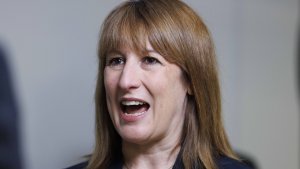With ongoing political upheaval home and abroad, 2018 will be another year of uncertainty - but is there anything we can be sure of?
Growth, Tax And Late Payment: Predictions For Business In 2018
With ongoing political upheaval home and abroad, 2018 will be another year of uncertainty - but is there anything we can be sure of?

I think the next 12 months could be a potentially tumultuous time for the UK economy, with Brexit negotiations likely to dominate the headlines throughout the whole year. We’ve already seen a lot of economic uncertainty arise due to the fact we still don’t know what the final deal for our exit from the EU will actually look like, and I don’t really see this changing much in 2018.
Late Payment
Delving deeper into the micro-business sector, we’ve found that around half of all the invoices sent by micro-businesses get paid late every year - and I expect that late payment will once again be a major issue for people running their own businesses in the coming year.
Despite the government appointing a late payment tsar to tackle the issue, it’s unlikely that he will actually have any real authority or powers to do so - and, instead, micro-business owners will continue to lose out on millions of pounds worth of late, or non-payments.
Taxes
I also expect the government to maintain its drive to standardise tax between self-employed and employed workers, despite the negative impact this will have on people running their own businesses.
In 2017, we saw the government try to reign in self-employed workers and ‘narrow the playing field’ between them and their employed counterparts in terms of the tax they pay. It sounds like a nice idea, but in reality this is actually an impractical, unfair solution that could have an extremely detrimental impact on self-employment in the UK.
Many self-employed workers face significant financial risks when starting and running their own businesses, and work incredibly long hours to make their ventures successful.
They don’t choose self-employment as an opportunity to pay less tax - but rather for other reasons including flexibility and the chance to enjoy a better work-life balance, or even just not being able to find work in traditional employment.
Furthermore, they do not receive any of the statutory benefits of employment, such as sick pay, maternity pay or pension provision - so their tax contributions should reflect this.
Micro-businesses form the backbone of the UK economy and should be encouraged and supported, so that they can become the success stories of tomorrow. By continuing to target them with extra tax regulations, we risk making self-employment an unattractive option for would-be entrepreneurs - which could be bad news for the economy in the long run.
Economic growth in 2018
Looking at likely growth areas for the economy in 2018, I believe that the financial sector is likely to see a swell of new technological advancements that will benefit the UK’s 5 million micro-business owners.
Fintech is already a very strong part of the UK economy and I think we’re going to see some big developments in the coming years. With the introduction of open banking in 2018, micro-businesses will soon be able to gain deeper insights than ever into their finances - and it’s likely that new services and apps will be developed that will harness this new dawn of data visibility and sharing.
This could eventually create an entire ecosystem of insight-based fintech infrastructure, where business owners are not only given important information about how much tax they owe and how much money they’re making, but are also alerted to issues like potential cashflow shortages and given easier access to specialist bank services such as loans or financing.
This in turn will make it easier for them to focus on actually running and growing their businesses, rather than managing admin.
Ed Molyneux is CEO and co-founder of FreeAgent.
Thanks for signing up to Minutehack alerts.
Brilliant editorials heading your way soon.
Okay, Thanks!


